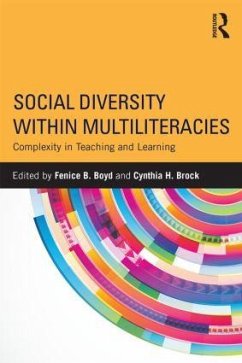
Becoming the System
A Raciolinguistic Genealogy of Bilingual Education in the Post-Civil Rights Era
Versandkostenfrei!
Versandfertig in über 4 Wochen
30,99 €
inkl. MwSt.
Weitere Ausgaben:

PAYBACK Punkte
15 °P sammeln!
Bilingual education is usually framed as a tool of antiracism. This book challenges that framing by pointing to the ways that the foundations of modern approaches to bilingual education have their roots deficit perspectives of Latinx communities. It connects these deficit perspectives with a broader shift in discussions of race that framed racial inequities as a product of cultural and linguistic deficiencies of racialized communities as opposed to structural barriers produced by centuries of racist policies. It then examines the ways that Latinx professionals who entered the field of bilingua...
Bilingual education is usually framed as a tool of antiracism. This book challenges that framing by pointing to the ways that the foundations of modern approaches to bilingual education have their roots deficit perspectives of Latinx communities. It connects these deficit perspectives with a broader shift in discussions of race that framed racial inequities as a product of cultural and linguistic deficiencies of racialized communities as opposed to structural barriers produced by centuries of racist policies. It then examines the ways that Latinx professionals who entered the field of bilingual education were expected to adopt this deficit perspective in ways that served to maintain racial oppression.













